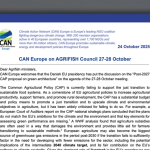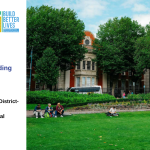In Article 2.1(c), Parties to the Paris Agreement agree to “[make] finance flows consistent with a pathway towards low greenhouse gas emissions and climate-resilient development.” The context for Art. 2.1c are the preceding goals on limiting temperature rise to 1.5 degrees C (Art 2.1a), adapting, building resilience and pursuing low-greenhouse gas development (Art. 2.1b); and Art. 2.2 includes the principles of equity, common-but-differentiated responsibility (CBDR), respective capabilities and national circumstances.
The context for the Dialogue and COP30 is challenging. The UNFCCC is facing increasing calls for reform, along with other multilateral institutions which are failing to deliver change at the pace required by global challenges. This is coupled with a transition in the UNFCCC regime. As the Paris Agreement rulebook is finalised, negotiations are shifting to focus on implementation, and the UNFCCC needs to change what and how it delivers. There are also challenges in the real economy including competing financial narratives and backsliding on Paris-alignment initiatives and regulation.
Ahead of a decision to be taken in Belém on Art. 2.1c, this briefing makes some recommendations on how Parties and stakeholders could shape a continued process on Art 2.1c, including objectives and format to prioritise. It considers space in the agenda, how to support implementation from the outset, and how to bolster the UNFCCC’s mandate and coordinating role in the multilateral landscape.
Read the briefing: Realising a strong decision on Article 2.1c of the Paris Agreement at COP30



